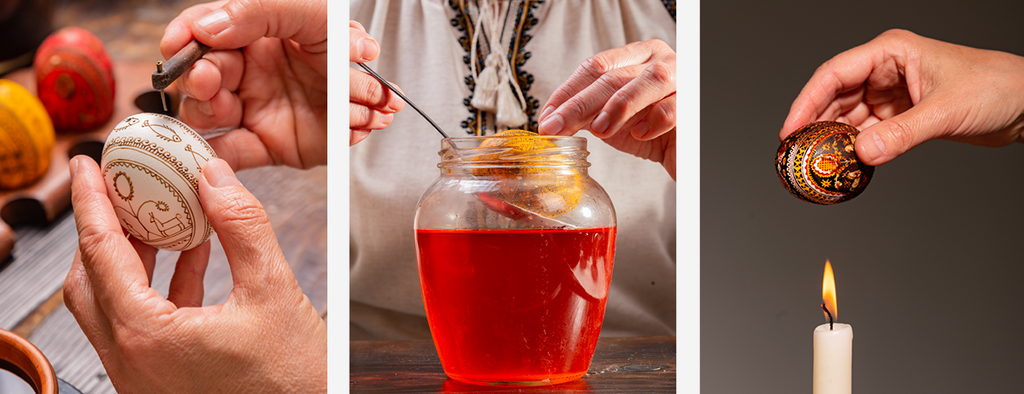Keeping the World Alive

Today was very hard day here. The words land quietly in the middle of a text conversation. Lesia is fact checking my story about Ukrainian tradition—the one I had written for you this morning. She is having trouble reading it on her computer.
We are under terrible missile attacks by russ. Everywhere in the country, We're without electricity. There are victims among civilians. These singular messages came in as bullets, one at a time. And then, still reporting, Now is ok. I can use my computer.
My heart stops. A news flash from a friend enters not through the brain but bombs the body, shutting down the power here, too. Lesia lives in the craft rich Pokuttya area of Western Ukraine and has carried on through the invasion with the band of women embroidering to keep their old traditions alive, to keep their families alive. In this text, I hear the women's precarious sense of safety utterly shredded.
I met Lesia as I purchased one of her flowing poet's blouses at the Santa Fe International Folk Art Market, and asked how else we might support her band of women in Kolomiya. Let's talk, she said, and so together, in the colorful home of her friend, we began to design dresses and blouses to keep her cooperative in work through the year. We used to embroider commissions for special occasions—weddings… festivities. But there are no more special occasions. So there is no more work.

On the dining table where we worked, I saw an explosion of bright Ukrainian eggs. They are pysankas, Lesia explains, a word which means writing, so that the hollowed out eggs are written with a stylus and intricate ribbons of heated wax, as in batik, then dyed once; more wax written and dyed again, and then again. Finally, the egg is held over a candle flame and—here is the magic—through the disappearing wax, a colorful bright ornament emerges.
I pick up the delicate treasures to look closely at the bright designs—spirals evoking the mystery of death and life, stylized birds and animals signifying new life in spring, healing plants and herbal motifs; stars, tears— passed down each generation since pre-Christian times. Our ancestors believed that the fate of the world depends upon the pysankas, Lesia explains. As long as the eggs are written, the world will live on.
Even now, especially now, in this darkness, the women back home paint these, Lesia tells me. I thought of how you and I grieve daily for those under the maul of a madman and how we would do anything to lift up those who pummel on, hearts broken, heads high. I thought of the women writing these—each a prayer for the world to survive. And so I bought them all. And more.
Sometimes when I feel that the world may really extinguish itself, I remember these women in Ukraine—and others all over the world—who in their daily act of creating beauty, nourishment, joy, are actually keeping the world alive. For every power station shelled, there are thousands of acts of creation being born. They are fragile gestures of hope, yes, but I want to say they are not powerless. They are not merely ornament. Not merely income for these who have, at the moment, no other. These heroic colors of joy unite us in the pursuit of something higher. These tiny prayers for a world that is one do, with each exchange, make us more so.
All the best,
SHW

Lesia Pona of the Pokuttya women's cooperative in Kolomiya personally adds ribbon to each feather- light egg so that you could hang one—or many—as an ornament. We put each egg in a little nest of a box made just for it, and send it your way. 100% of proceeds will support the women artisans in Ukraine. Spread the color, the love, the gift of the Good Egg.


